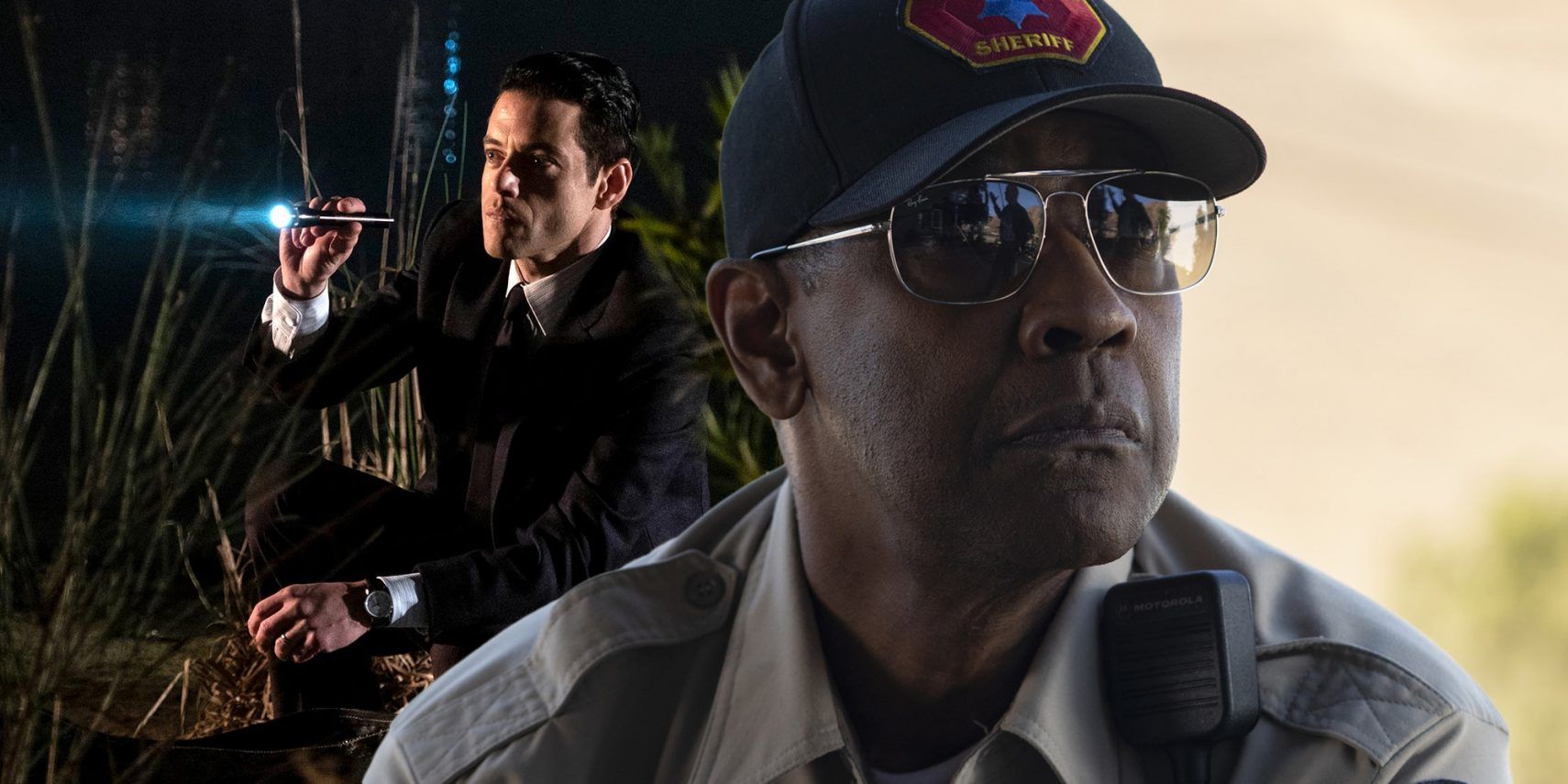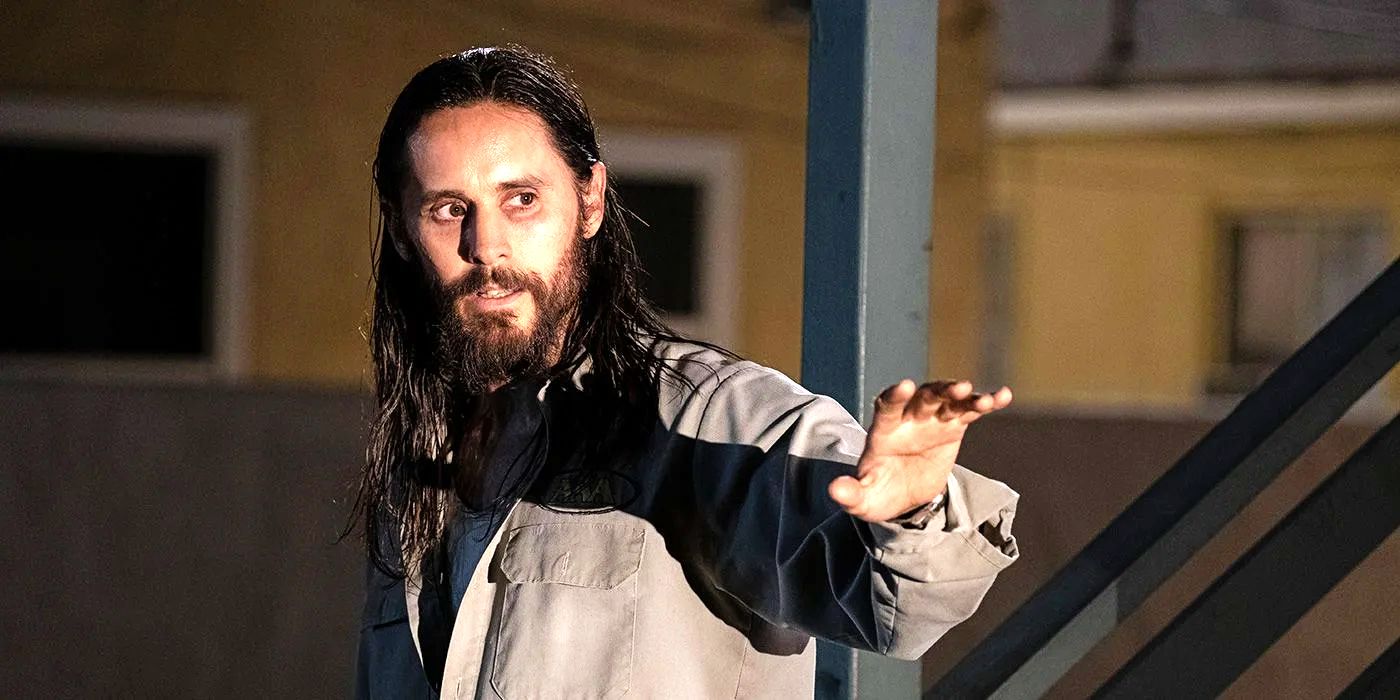The Little Things plays out like most crime dramas, but the final act deviates from a tried-and-true formula by failing to reveal who is the killer. The Little Things, written and directed by John Lee Hancock (The Blind Side), can currently be seen in theaters and on HBO Max. The central plot revolves around Kern County deputy Joe "Deke" Deacon (Denzel Washington), who teams up with LA homicide detective Jim Baxter (Rami Malek) to investigate a series of grisly murders. The Little Things has received mixed reviews, and the movie's ambiguous ending continues to both perplex and frustrate viewers.
Baxter and Deke quickly hone in on a suspect, Albert Sparma (Jared Leto), but all they have is circumstantial evidence. Their frustration is compounded by Sparma's constant taunting, which can be interpreted as someone whose innocence fuels his arrogance or a cold-blooded killer who has knows he's covered his tracks or a man who craves the notoriety that comes with getting caught. During a Se7en like standoff (released two years after Hancock penned the screenplay), Sparma goads Baxter until he snaps, bashing Sparma's head in with a shovel, killing him with his role in the killings up in the air. Deke helps Baxter conceal his crime, and before returning home, he leaves Baxter with a piece of evidence that points to Sparma as the murderer (a red barrette worn by a missing girl believed to be the killer's latest victim). The gesture is meant to assuage Baxter's guilt. However, in the film's final scene, it's revealed Deke bought the barrette, meaning the case remains unsolved and questions remain unanswered.
In a recent interview with EW, Hancock acknowledged that viewers might have been satisfied with a more formulaic ending, but providing one was never his intent. Even Jared Leto was in the dark about whether his character was guilty, and when the actor asked Hancock, he replied, "I don't know, and that's not what the movie's about. ... it's an ugly ending any way you look at it; it's all about the grey." Those grey areas deconstruct the traditional good guy-bad guy tropes. The case offers Deke the opportunity to right previous wrongs, but he winds up repeating his mistakes, making his character irredeemable. Deke needles "holy roller" Baxter about his devoutness only to position himself as the man's savior. Deke's snippets of sage wisdom are thinly-veiled justifications for committing reprehensible acts, stressing that they aren't "angels." There is no absolution for Deke because he can't save the only victim who matters: the one he killed.
Baxter's journey in The Little Things is a dark one. At the start of the film, Baxter's biggest flaw is his ambition. Despite warnings from his captain about Deke being a cautionary tale (a hypocritical act given his complicity in covering up Deke's murder of Mary Roberts), he hitches himself to Deke anyway. With the threat of the FBI swooping in and one girl missing, Baxter's sense of urgency escalates, and he's willing to abandon his moral compass if it means getting results. The movie explores how obsession can not only chip away at a person's humanity but devour their very soul.
Leto, who has received both 2021 Golden Globe and SAG nominations for his performance as Sparma, makes for a complexly layered antagonist. He's courteous, orders a Shirley Temple at a bar, and delivers bags of hamburgers to hungry prostitutes. He's also a man who can't be bothered to wash his hair but keeps his car immaculate, he lurks around crime scenes, he's clever, and he derives pleasure from messing with the police. He may not be guilty of murder, but the just possibility that Baxter and Deke got it right means his grim fate isn't likely to elicit sympathy from the audience because it does feel like the world is somehow a better, safer place without Sparma in it. An ironic twist since Baxter and Deke, whose guilt isn't debatable, go free. Given the recent protests and demands that police be held accountable for their actions, The Little Things has sparked controversy and criticism for being tone-deaf.


